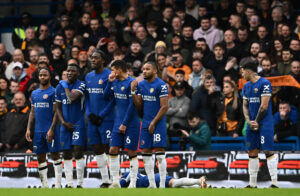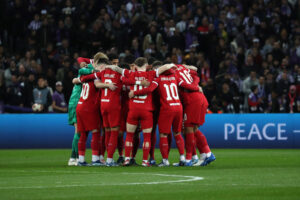The scoreline 6-0 is more commonly associated with tennis (where it is known as a ‘bagel’ and refers to a completely one-sided set) than with football. This week, however, Spain ‘bagelled’ Croatia, the World Cup runners-up, and in the process spectacularly announced the start of the Luis Enrique era. Nevertheless, the former Barcelona manager will know that the rest of his tenure as national team manager is unlikely to be as straightforward. In particular, trying to get Spain back to the incredible heights they reached between 2008 and 2012 when they won three successive international tournaments (one World Cup and two European Championships), will be a task that makes Sisyphus’s look easy.
Can Luis Enrique Lead Spain Back to the Top?
The remarkable result from the Nations League match in Elche, near Alicante on Spain’s Mediterranean coast, would have stunned and even alarmed the rest of world football. Enrique’s Spain had already narrowly beaten England, who of course only lost narrowly to Croatia in the World Cup semi-final, at Wembley a few days earlier, but the thrashing of Croatia was of another magnitude altogether. There were some mitigating factors, principally the fact that only four of the Croatian players who lost to France in the World Cup Final faced Spain. Nevertheless, it was still one of the most remarkable recent results in a match between two premier international sides. Perhaps only Germany’s 7-1 annihilation of Brazil in the 2014 World Cup semi-final surpasses it for sheer surprise, but Brazil 2014, and particularly their porous defence, were not as good as Croatia 2018.
The only downside of the Croatia game is that it surely compounded the sense of frustration and ‘what might have been’ in Spain about their own desperately poor performance at the World Cup in Russia. Of course, that campaign had been fatally undermined at the start by the sacking, before the tournament had even begun, of manager Julen Lopetegui, after it became public knowledge that he would become Real Madrid boss after the tournament. Nevertheless, the plain fact is that Spain, who in theory had perhaps the best squad in Russia (one that was perhaps even better and deeper than that of the eventual winners, France) stunk Russia up. They produced only one semi-impressive performance, in their astonishing opener with Portugal that finished 3-3, and by the time they lost to Russia on penalties in the Last 16, it appeared that their relentless ‘tiki-taka’ passing game had disappeared down a cul-de-sac (or ‘cul-de-saca’, perhaps).
A New Man at the Helm
Luis Enrique took charge of Spain over the summer. He is clearly a man who likes a challenge and it appears that the tougher the challenge, the better. He was one of the few players in Spanish football history who has ever performed with distinction for both Real Madrid and Barcelona without invoking the wrath of at least one set of supporters; he was the first manager to really replace Pep Guardiola at Barcelona, emulating Guardiola by winning the treble of Champions League, Spanish League and Spanish Cup in his first season; and even his supposed hobby, running ultra-marathons, is evidence of his phenomenal mental and physical toughness.
Nevertheless, trying to revive Spain after their recent lull at international level may well prove to be the hardest task he has ever faced. Spain still have many outstanding players, especially in midfield, where Saúl Niguez, Marco Asensio and Isco all excelled against Croatia. The problem is that even those riches pale somewhat in comparison with those of the truly great Spanish side that won everything between 2008 and 2012, which in Xavi and Iniesta could boast a midfield duo that might just be the best ever in world football. (Arguably, only the great Dutch axis of Johan Neeskens and Johan Cruyff in the 1970s can compete with them for that accolade.)
More broadly, it is always virtually impossible in football, as in any other field of human endeavour, to follow a genuinely golden age. The fact is that Spain’s extraordinary run of success in the late noughties and early teens is very much the exception that proves the rule – the rule being that Spain generally do not triumph at international level. Prior to 2008, the only global or continental title that the country had won was the 1964 European Championships. In the near half-century afterwards, Spain had a regular stream of outstanding, even great, players (including Jesús Zamora, Emilio Butragueno and Raúl, to name just three) but they still could not mould and hold together a winning team. That was most stunningly evident at the 1982 World Cup, when, despite being hosts, Spain first suffered the ignominy of losing to tiny Northern Ireland in the first round before meekly capitulating against Germany in the second round.
No Past Glories
Put simply, Spain have never been one of the regular winners at international level, unlike, say, Germany and Italy (who can both boast of being four-time world champions), or even France (who have now won two World Cups to go alongside their two European Championship titles). Now, even though they still have the basis of a potentially great team, as they demonstrated so powerfully against Croatia, there are still bound to be doubts that they can get anywhere near the achievements of the great side of recent memory.
There are other potential difficulties that could weaken Enrique’s team, notably what appears to have been the recent resurfacing of the age-old rivalry between Real and Barca, which was so effectively quelled (or at least calmed) between 2008 and 2012 by the likes of Xavi and Sergio Ramos. That internal battle is not only re-emerging on the football pitch, as shown by the furore over what was seen by many non-Real fans in Spain as Lopetegui’s defection to Real from the national side, but in Spanish life in general. That is especially true after the recent Catalan vote for independence and the subsequent imprisoning of so many Catalan politicians.
Problems Ahead For Enrique
There are also possible problems ahead for all international managers, and not just Enrique himself, because of the international schedule that lies ahead over the next few years. Russia 2018 was a truly great World Cup, one to set alongside 1970 and 1986, featuring more genuinely classic matches (Spain v Portugal, France v Argentina, Belgium v Japan and Belgium v Brazil) than many recent World Cups put together. It appeared to reanimate the international game, which of course is under so much threat from the rise of club football, but what follows it may undo all the great achievements of the summer.
First, there is the drunken dog’s breakfast that is the European calendar over the next two years, with the nascent Nations League being followed by a host-less Euro 2020 that will be played out all over Europe. Then there is the even worse prospect of the World Cup in Qatar in 2022, which, because it will have to be played in the autumn and not the burning summer heat of the Middle East, could impact horrendously not just on one club season but as many as three. If that is the case, it could well mark a disastrous period for international football generally, one that could even mark the beginning of the end for international football as we know it, if the big clubs become frustrated by the endless interference (as they see it) of international football and decide to break away completely from UEFA and FIFA.
So, Luis Enrique faces both Spain-specific problems and wider problems that will potentially affect all international managers in the four years ahead. The only consolation is that if he can somehow lead Spain back to international glory, even running an ultra-marathon will seem a doddle in comparison.
Main Photo






